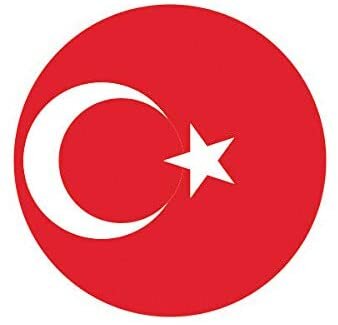Coping with Collective Grief
Many people are experiencing grief and loss about Palestine. This grief can take multiple forms. The first is collective grief, which is when we share a significant loss with others. The loss can refer to loved ones, but also to hope. The second is anticipatory grief, which is when we experience feelings of anxiety, helplessness, shock, and even despair as we expect further loss and suffering as the crisis continues. These intense feelings are part of the mourning and grieving process.
Grief can manifest in a number of ways including:
Physically (e.g. sleep difficulties, weight change)
Cognitively (e.g. difficulty concentrating, confusion) and socially (e.g. withdrawal, lack of interest in seeing other people)
Emotionally (e.g., anger, rage, guilt, numbness, irritability, and agitation are common grief responses)
In response to the current socio-political climate, Dr. Dana Jammal has noticed that many clients are experiencing psychological distress, increased thoughts about death and dying, and even more anxiety about their own health.
Coping with Collective Grief
It is important to give yourself permission to mourn, rather than to try to suppress how you are feeling. When you recognise and bring to awareness the emotions you are experiencing, you can begin to take the first steps to move through grief.
News Consumption
It can be difficult to limit our consumption of news, particularly social media, during critical times like these. However, exposing ourselves to traumatic events repetitively has been shown to bring about exhaustion, hopelessness as well as symptoms of depression. It is important to be mindful of how much time you spend listening and reading news and allow yourself to take breaks and space.
Giving Time and Resources
Engaging in tangible actions such as making donations or volunteering can empower individuals to transition from a sense of helplessness to a more proactive approach that aligns with their values.
Loss vs. Restoration-Oriented Coping
One tactic that can be particularly helpful is to switch between loss and restoration-oriented coping. A loss orientation involves coping with issues directly related to the loss - for example acknowledging your sadness or allowing yourself to cry if you come across traumatic footage of people who have been killed. This form of coping can generate powerful emotions that are important to process grief.
Restoration-oriented coping involves focusing on things in your life that are unrelated to the loss such as learning a new skill. It is important to balance a loss orientation with restoration as a healthy way to process collective grief without being consumed by it.
Connecting with Others
We encourage individuals to open up to others. Sharing in the experience of collective grief allows individuals to articulate their pain, creates space to validate how they are feeling and find common ground in their shared experiences. This can cultivate a sense of unity and resilience in response to witnessing tragedies and enduring acts of violence and honour our shared humanity.
Please know that you are not alone if you are experiencing grief and loss around what is happening in Palestine. We hope Dr. Dana Jammal's practical strategies for reducing collective grief and anticipatory grief are helpful for you and the people that you care about.
Our team of mental health clinicians - psychiatrists and psychologists - are here if you need further support. We offer individual support, including grief counseling and bereavement support, to children, adolescents, and adults.
Reach out to us however you feel comfortable - Whatsapp or call us on +971 56 895 2347. You can also email or simply send us a query via our online form.






















